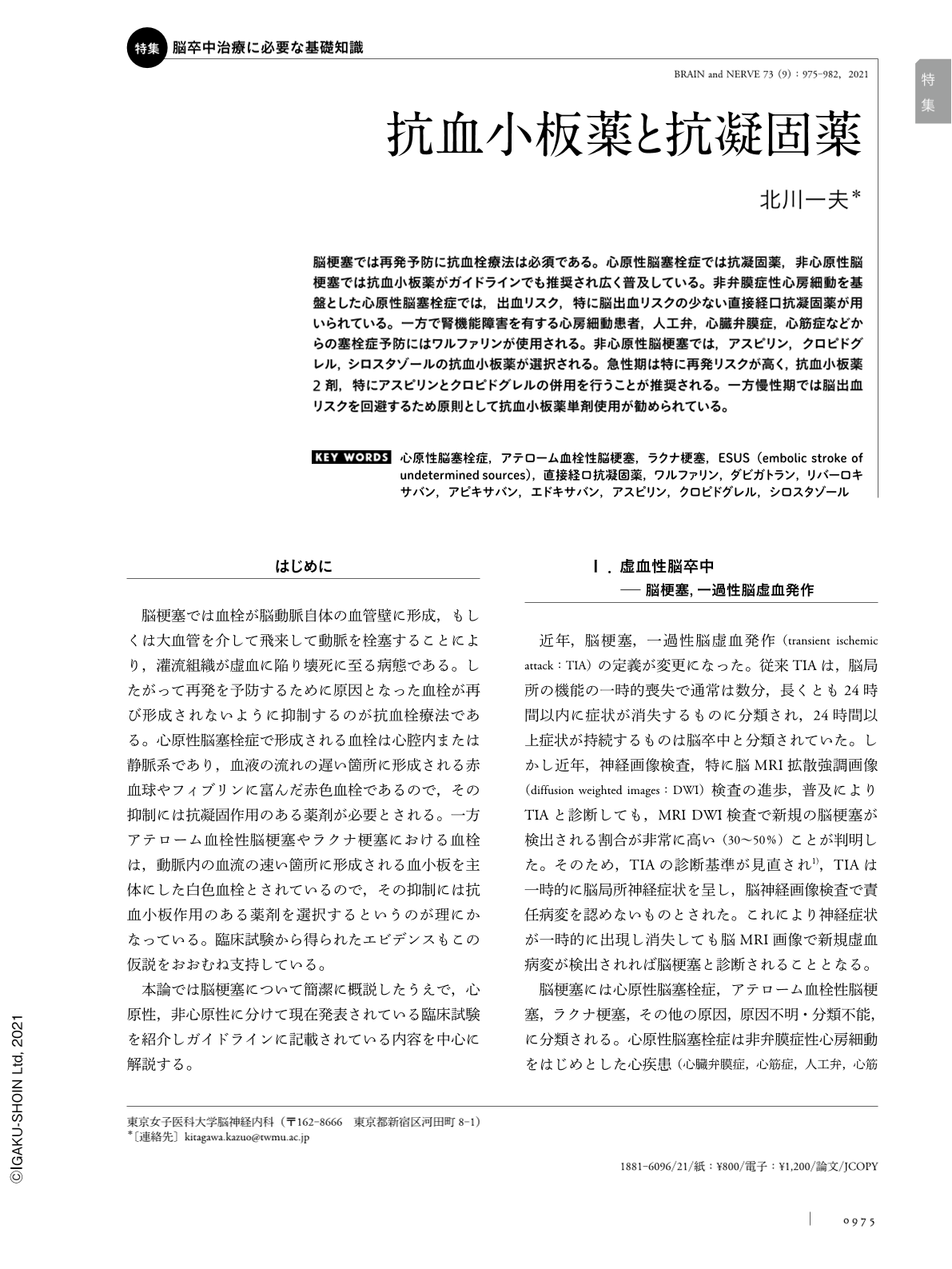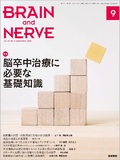Japanese
English
- 有料閲覧
- Abstract 文献概要
- 1ページ目 Look Inside
- 参考文献 Reference
脳梗塞では再発予防に抗血栓療法は必須である。心原性脳塞栓症では抗凝固薬,非心原性脳梗塞では抗血小板薬がガイドラインでも推奨され広く普及している。非弁膜症性心房細動を基盤とした心原性脳塞栓症では,出血リスク,特に脳出血リスクの少ない直接経口抗凝固薬が用いられている。一方で腎機能障害を有する心房細動患者,人工弁,心臓弁膜症,心筋症などからの塞栓症予防にはワルファリンが使用される。非心原性脳梗塞では,アスピリン,クロピドグレル,シロスタゾールの抗血小板薬が選択される。急性期は特に再発リスクが高く,抗血小板薬2剤,特にアスピリンとクロピドグレルの併用を行うことが推奨される。一方慢性期では脳出血リスクを回避するため原則として抗血小板薬単剤使用が勧められている。
Abstract
Antithrombotic therapy is essential for secondary stroke prevention. Clinical practice guidelines recommend anticoagulant and antiplatelet drug administration as first-line therapy for cardioembolic stroke and non-cardioembolic infarction, respectively. Direct oral anticoagulants represent first-choice treatment for cardioembolism secondary to non-valvular atrial fibrillation owing to few hemorrhagic complications associated with this therapy. However, warfarin with optimal control of the international normalized ratio for standardization of prothrombin time is preferred in patients with kidney dysfunction, artificial valve implantation, valvular heart disease, and cardiomyopathy. Antiplatelet drugs, including aspirin, clopidogrel, and cilostazol are used in patients with non-cardioembolic infarction. Dual antiplatelet agents, including aspirin and clopidogrel, are recommended during the acute stage because of the high risk of recurrent ischemic stroke. In contrast, a single antiplatelet drug is recommended during the chronic stage to avoid the risk of intracranial hemorrhage.

Copyright © 2021, Igaku-Shoin Ltd. All rights reserved.


